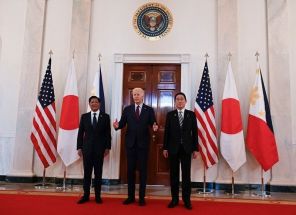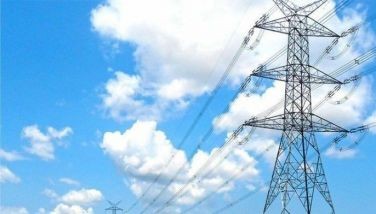#ChallengeAccepted: Influencers can go beyond 'good vibes' and drive discourse on national issues
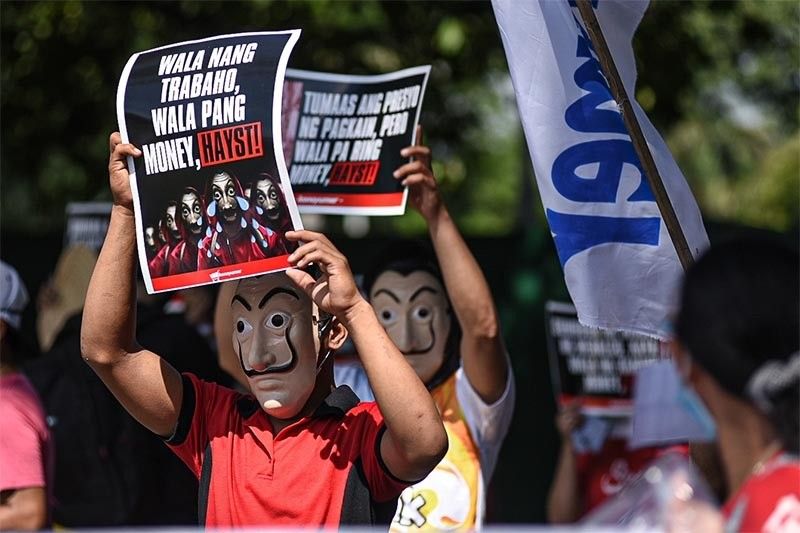
MANILA, Philippines (Updated 5:44 p.m.) — Nineteen internet personalities — "influencers" in today's marketing speak — took their opposition of the Anti-Terrorism Act of 2020 off social media and to the Supreme Court.
Calling themselves the "Concerned Online Citizens", the influencers filed the 21st legal challenge against the highly contentious new law. It is not the first time that online personalities have brought their advocacies offline, but this is the first time in a long time for them to go to court on a political issue.
The filing comes amid a raging pandemic that the government has addressed primarily by confining millions of Filipinos to their homes during what is already the world’s longest lockdown.
For some social media personalities or "influencers," these uncertain times when national issues have become part of social media conversations may mean they will need to tread carefully in waters that are not at the beach or in an infinity pool.
Two kinds of social media users
Prof. Vladimeir Gonzales, a scholar on fan and pop culture and Filipino literature, tells Philstar.com that there are two kinds of people with social media access: One that engages and initiates conversations and influence, and one that would readily consume what their “idol” says.
The divide between the two kinds of users has become clearer at a time of precarity, when a pandemic, a network shutdown, and a law seen to be prone to abuse threaten to upend thousands of lives.
“Nagiging mas malinaw din ang paghati ng mga influencer na handang makipagdayalogo sa kanilang audience at lipunan, at ang mga influencer na ahente lamang ng pagpapatahimik at pagpapalaganap ng pantasyang mapayapa ang buhay—sa gitna ng krisis at pang-aabuso,” Gonzales says.
(The divide among influencers is becoming clear: Those who are ready to engage their audience and society in a dialogue and those who remain agents to silence and spread the fantasy of a peaceful life—in the midst of a crisis and abuse.)
Gonzales holds a Masters Degree in Malikhaing Pagsulat and a Doctor of Philosophy degree in Filipino (Pagsalin) from the University of the Philippines Diliman, where he also teaches at the Department of Filipino and Philippine Literature.
His latest published book is "Mga Tala ng Isang Super Fan: Fan Poetry at Fiction."
Influencer culture in the Philippines
Gonzales explains that influencer culture in the country can be seen through two lenses used by communications scholars: That of Henry Jenkins, whose idea of an influencer balances “sticky” vs “viral” content model of media; and of Roland Tolentino, where there is “projection of particular ideas of a pleasant and good life” that is actually “’fantasy’ reserved to selected kind of society.”
This means, he says, that there are two kinds of consumers with access to media, especially to social media.
He says there are social media users who are primarily consumers but who also interact with and can influence content creators' followers.
"Sila ang fans na naiimpluwensyahan pero kaya ring mag-isip at makaimpluwensya ng iba," he says.
(They are fans who can be influenced but can think and can influence others.)
There are also followers who "mindlessly" accept whatever content that the influencers they follow produce.
"Handa siyang sundin at ikonsumo ang kahit na anong produkto, serbisyo, at maging ang pananaw sa buhay na nais ipahawa ng idolong ito, kahit pa may posibilidad na 'pantasya' lamang ito o accessible sa iilang mga particular na grupo sa isang komunidad o lipunan," he says.
(They are ready to follow and consume and product, service, or even perspective that their idols offer up, even if there is a possibility that that is just a 'fantasy' or is accesible only to a particular group within a community or society.)
The 2020 Digital News Report on the Philippines found that while traditional TV is still has the biggest share of the news media landscape, “news websites and social media are more widely used.”
Meanwhile, the "Digital 2020: The Philippines" report released last February found there were 73 million social media users in the country as of January. The report's Digital Global Overview found that "internet users in the Philippines spending an average of 9 hours and 45 minutes per day online."
The DNR is a project of the Reuters Institute for the Study of Journalism at Oxford University, while DataReportal is produced by strategic marketing consultancy firm Kepios and its CEO Simon Kemp, with Hootsuite and We Are Social.
Crisis creates contrast
The shuttering of businesses due to the pandemic and ABS-CBN shedding media workers while it remains off the air as well as the perceived narrowing of democratic spaces has forced many who have influence to rethink their positions.
Gonzales illustrates: For television and movie celebrities: There are those like Angel Locsin — although she would not brand herself as an influencer — who do not shy away from starting discussions on the crises that the Philippines is facing; then there are those who say it would be better to be silent and just leave everything to God and to good vibes.
ABS-CBN's shutdown also saw the country's biggest TV stars on the streets to join protests, while on Twitter, social media users sought out celebrities for their stand on the issue. Fandoms also rushed to shield their "idols" from criticism of being out of touch with the rest of the country or of going to the beach while thousands at their network are being laid off.
In the professional sphere, Gonzales notes that politicians with followings online may use their social media accounts to push the narrative of “pasaway” or stubborn Filipinos causing a spike in COVID-19. Medical professionals also took it upon themselves to counter and debunk this claim.
READ: Government banks on 'discipline' as likely shift to GCQ nears | Gov't said Filipinos are 'pasaway' and violate quarantine, but data show otherwise
Among influencers, Gonzales says, there is a divide too. There are, he says, "thirst trap influencers" who, months into the lockdown, are still posting beach content or endorse expensive food supplements or gadgets.
Meanwhile, there are "theater influencers" with fewer followers who use their voice to explain how it is to lose a job in a pandemic or to give space to discussions on mass arrests during the lockdown.
On Instagram, Filipino artists have united under the handle @artnotterrorism to use their craft to explain, initiate conversations and voice out their opposition against the Anti-Terrorism Act of 2020.
Gonzales explains: “Pinatitingkad ng krisis ang potensyal ng social media at ng influencer culture para maging makatao at makatotohanan, kahit pa litaw pa rin ang katotohanan gaya ng ibang anyong media, may digmaan at agawan para sa pagpapahayag ng pinakatunay na bersyon ng daigdig.”
(Crisis amplifies the potential of social media and influencer culture to become more humane and realistic, even if it is also true that, like in other forms of media, there is war and a struggle to broadcast the most accurate version of the world.)
National issues generate conversations online
For Mark “Macoy” Averilla, more known online as Macoy Dubs, relevance and humor rank the highest in factors he considers in making content, but he also ‘"listens in" when his followers talk about national issues.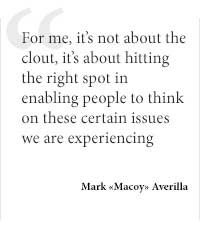
"Social media gives us a lot of information already to the point that we experience content fatigue. To be able to minimize content fatigue, humorous content would help by promoting critical thinking and good judgment," he tells Philstar.com.
From “dubbing” iconic movie scenes in 2018, Macoy went on to create TikTok videos where he impersonates Filipinos that we meet in our daily life: An irate government employee, a pregnant assistant in a drug store or your too nosy neighbor.
In these short videos, Macoy would inserts social commentary on certain issues such as government response—or the lack thereof—to the COVID-19 pandemic.
Macoy says he noticed that talking about national issues generates more conversations and engagement, “because most of them have a say or opinion.”
His Facebook page boasts of more than 370,000 likes and more than 635,000 followers.
On his Twitter account, where he also cross-posts his TikTok videos, Macoy is more vocal. With more than 120,000 followers, Macoy does not hold back in expressing his stand against the Anti-Terrorism Act of 2020 and the closure of ABS-CBN.
Pagka hirap 'pag walang ABS-CBN. Sauce, buti na lang may bumiling pogi. Eme! pic.twitter.com/7TtnNrNYfP
— Macoy Dubs (@macoydubs1) July 10, 2020
'Brands care, and they would want influencers to care too'
Bianca Fernandez, creative director at Publiciz JimenezBasic, says companies looking for ambassadors consider a social media personality's politics too. “Not necessarily what their political stance is but how the target market of a particular brand perceives an influencer’s total persona,” she tells Philstar.com in an e-mail.
“Are you too abrasive? Not aligned with the brand’s family values? Are you politically incorrect?”
But the advertising executive says that brands, including Philippine companies, have become “more progressive now”.
"They recognize that a bulk of the younger market (young millennial and the Gen Z) gravitate towards brands that stand for something important and so an influencer who has a point of view is often more effective in reaching out to their target market," she adds.
As such, speaking out on national issues no longer means a death sentence for an influencer's career. "There are a lot of brands embracing inclusivity, equality, diversity, justice."
"As more brands navigate and learn how to do this kind of marketing, the more they will turn towards influencers who are known to stand for these values," she explains.
Sana naman po bumaba na yung cases natin sa pagpapasara ng ABS-CBN ano po? Kala ko nga po bababa na ang cases nung pinasabatas ang terror bill pero parang ganun pa rin naman po. Tumataas pa nga po. WOOOOOH!! PINAS PATAAS!! ???????????? https://t.co/PaPcfBqWUR
— mimiyuuuh ???? (@mimiyuuuh) July 10, 2020
The weight of online influence
Gonzales says one problem with influencers, especially those who won’t break out of the "fantasy of a ‘politics-free’ and ‘good vibes’ only kind of lifestyle," is that they may create a hybrid thinking/non-thinking fandom.
“Ito ang tipo ng followers na nabugbog sa mga imahen at istorya ng isang perpektong mundo, isang perpektong pantasya, sa puntong kapag may tangka nang sirain ng influencer ang ganitong imahen ay maaaring mahirapan nang burahin at ibasura ng mga tagasunod niya ang naitanim nang lihis na larawan ng mundo,” he explains.
(This is the type of follower that is flooded with images and stories of a perfect world, a perfect fantasy. And if it happens that an influencer would attempt to show a different version of the world, their followers will have a hard time letting go of the fantasy)
But Gonzales says that this would not be a problem if influencers accept that they may lose followers by telling true story about the world we live in.
"Ano ba naman ang makaltasan ng ilang daan o libong birtuwal na tagasunod kung may posibilidad namang makahubog siya ng panibago at mas malayang pananaw? Mahalagang maisagawa ang pagpapalayang ito sa isang sinserong pagnanais na umugnay at makipag-usap hindi lang sa online followers kundi sa iba pang mga sector na hindi naaabot ng nauusong teknolohiya," he stresses.
(What is losing a few hundreds or thousands of followers when there is an opportunity to form a new and more liberating view? It is important to push for this liberation in a sincere desire to connect and converse with, not only online followers but also with other sectors that are not reached by technology.)
'What is more important than people, than freedom of speech?'
Advertising agency executive Fernandez also points out social media personalities who came to be influencers owe it to their audience who supported their content "that they and we are 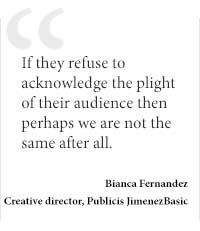 the same—real ordinary human beings."
the same—real ordinary human beings."
"They are famous because they care supposedly about the same things their viewers do. They influence their fans to care about what they think is important. And what is more important than human beings? What is more important than freedom of speech?” she says.
"If they refuse to acknowledge the plight of their audience then perhaps we are not the same after all."
Macoy shares bashers and critics online have only motivated him to create content that also speaks about national issues. "Because it’s relevant now and this is good timing to spread the right information and truth at the same time," he says.
The content creator however admits that he is now more careful in crafting his script due to the implementation of the Anti-Terrorism Act of 2020.
"For me, it’s not about the clout, it’s about hitting the right spot in enabling people to think on these certain issues we are experiencing," he adds.
Gonzales also reminds social media users that this avenue is not just a one-way or two-way street.
"Sana’y handa ang lahat ng may kakayahang makaimpluwensya na magtawid ng kanilang mga tagasubaybay at tagasunod sa kaligtasan, may panganib man ng pagbabawas ng followers o/at malihis sa nakasanayang branding o projection sa madla," he adds.
(I hope everyone who has influence is ready to help guide their followers to safety even if there is a risk of losing followers or of going off their usual branding)
(Editor's note: This article has been revised to condense long blocks of quotes into a more readable format)
- Latest
- Trending




















